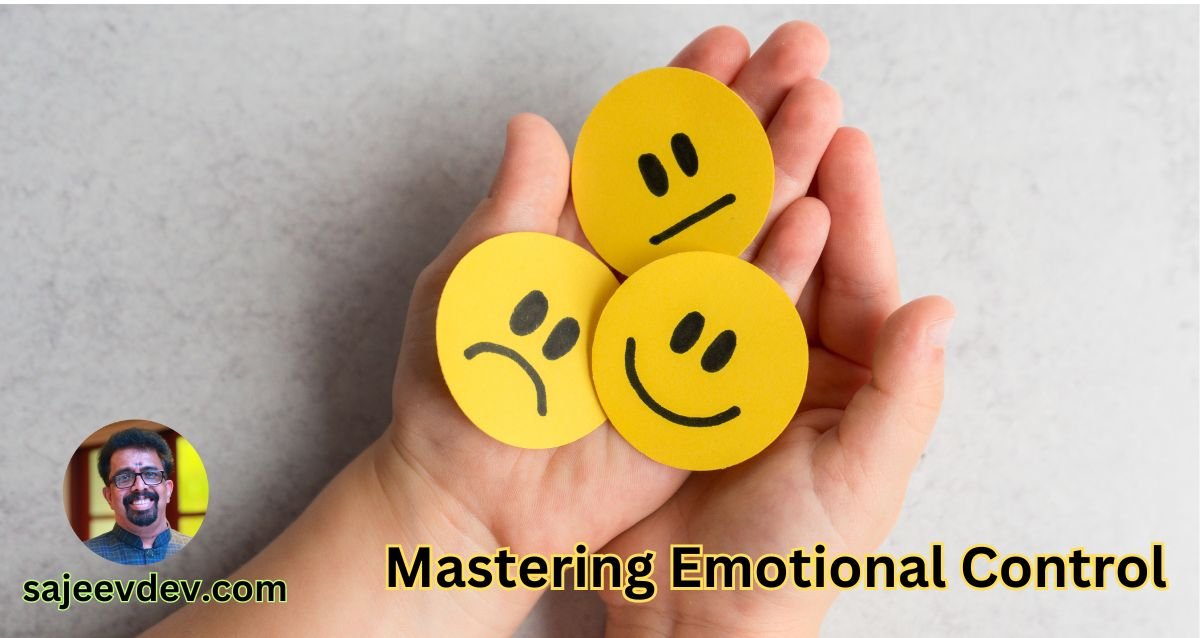Mental strength refers to one’s capacity to manage emotions, thoughts, and behaviors in the face of challenges and adversities
Mental strength refers to one’s capacity to manage emotions, thoughts, and behaviors in the face of challenges and adversities. It embodies the ability to navigate through stressful situations with resilience and determination. Much like physical strength, which is built through consistent practice and endurance, mental strength is cultivated over time through intentional effort and practice. In today’s fast-paced world, where individuals frequently encounter pressures from various aspects of life—be it work, relationships, or personal health—the relevance of mental strength has never been more pronounced.
The concept of mental toughness shares several parallels with physical resilience. Just as athletes condition their bodies to withstand rigorous training and competition, individuals must similarly fortify their minds to endure life’s inevitable hardships. Developing mental strength equips a person with the ability to respond rather than react, allowing them to face difficulties with a sense of calm and clarity. This proactive approach to challenges fosters not only personal growth but also empowers individuals to bounce back from setbacks with renewed vigor.
In our contemporary society, where instant gratification is often prioritized, cultivating mental toughness becomes increasingly critical. It serves as a vital toolkit for effectively managing stress, enabling individuals to maintain focus and avoid being overwhelmed by daily demands. Moreover, mental strength enhances decision-making capabilities, making it possible to pursue goals with greater tenacity and purpose. By understanding and embracing the importance of mental strength, individuals can enrich their lives and improve their overall well-being. This foundation sets the stage for exploring practical strategies to strengthen one’s mindset and harness the power within to conquer life’s challenges.
The Science of Mental Strength
Mental strength encompasses a wide range of psychological and physiological characteristics that enable individuals to navigate challenges effectively. It is often misconceived as merely possessing willpower; however, research suggests it is a multifaceted construct involving resilience, emotional regulation, and the capacity to confront adversity. Psychological resilience, for instance, refers to one’s ability to bounce back from setbacks, while emotional regulation pertains to the methods employed to manage one’s emotional responses to stressors.
Studies indicate that individuals with higher levels of mental strength tend to exhibit improved coping mechanisms when faced with adverse situations. This cognitive robustness enables them to maintain focus and devise strategies that not only mitigate stress but also foster growth and adaptation. By engaging in problem-solving and maintaining a positive outlook, resilient individuals make informed decisions that guide their responses, ultimately transforming challenges into opportunities for personal development.
Additionally, the physiological aspects of mental strength are equally critical. Research underscores the relationship between mental health and physical well-being, showing that optimal mental strength can promote better physiological responses during stressful periods, such as the reduction of cortisol levels—a hormone linked to stress. This well-documented connection between mind and body highlights the importance of mental strength in achieving holistic health outcomes. Furthermore, individuals skilled in emotional regulation often experience lower levels of anxiety and depression, emphasizing the profound influence mental fortitude has on overall well-being.
The amalgamation of cognitive processes and emotional control cultivates a robust framework that underpins mental strength. It is imperative to recognize that building such strength requires dedication to developing these intertwined skills through practice and experiential learning. Enhancing one’s mental strength can lead to significant improvements in both personal and professional domains, making it a valuable pursuit in today’s fast-paced world.
Benefits of Developing Mental Toughness
Developing mental toughness can have profound effects on various aspects of an individual’s life, particularly in managing stress, enhancing problem-solving skills, and promoting overall well-being. One of the key benefits of a resilient mindset is improved stress management. Individuals who cultivate mental strength are better equipped to navigate challenging situations, as they can maintain focus and composure even under pressure. This ability to handle stress effectively not only enhances daily functioning but also contributes to long-term emotional health.
In addition to stress management, mental toughness significantly enhances problem-solving skills. A strong mindset encourages critical thinking and fosters creativity, enabling individuals to approach problems with a constructive attitude. When faced with obstacles, mentally tough individuals are more likely to explore multiple solutions and engage in proactive decision-making, rather than succumbing to defeatism. This approach not only benefits personal life but is particularly advantageous in professional settings where challenges are often complex and multifaceted.
Furthermore, the benefits of developing mental toughness extend to overall well-being. A robust mental framework allows individuals to set and pursue goals with determination, leading to a greater sense of accomplishment. This sense of achievement builds self-esteem and encourages a positive outlook on life. In both personal and professional spheres, mental resilience facilitates adaptability and enhances performance by fostering a willingness to embrace challenges as opportunities for growth.
By investing in the development of mental toughness, individuals can harness their inner strength to improve not just their performance, but also their quality of life. Indeed, the real-life applications of mental resilience can be witnessed across various domains, demonstrating its value in fostering success and well-being.
Identifying Your Mental Weaknesses
Recognizing mental weaknesses is a critical step towards enhancing mental strength and resilience. To embark on this journey of self-assessment, individuals can employ various techniques that promote introspection and self-reflection. One effective method is keeping a daily journal, where thoughts and feelings can be recorded. This practice not only fosters a greater awareness of emotional fluctuations but also allows for the identification of recurring negative thought patterns. Analyzing entries over time can illuminate specific triggers that lead to moments of doubt or stress.
Another helpful strategy is conducting a thorough self-inventory. Individuals can evaluate their reactions to challenges, stressors, and interpersonal conflicts. Questions to consider include: How do I react when faced with adversity? What thoughts cross my mind in stressful situations? By answering these questions honestly, individuals can gain insight into mental barriers that undermine their resilience. It’s important to be candid, as this clarity can lay the groundwork for future growth.
Additionally, seeking feedback from trusted friends or family members can provide an external perspective on one’s mental strengths and weaknesses. Often, those closest to us can highlight behaviors we may overlook, as they provide an unbiased view of how we respond in various situations. Engaging in open discussions about emotional responses can lead to valuable insights.
Mindfulness practices such as meditation or yoga can also facilitate the identification of mental weaknesses. They promote relaxation and focus, allowing individuals to observe their thoughts without judgment. This awareness can be vital in pinpointing specific negative patterns that impede mental resilience. Developing mental strength requires recognizing these vulnerabilities, and through consistent self-assessment, individuals are better equipped to address these areas of concern. Each identification of a weakness can serve as an opportunity for focused improvement, fostering a path to greater mental fortitude.
Techniques to Build Mental Strength
Developing mental strength is akin to building physical strength; it requires consistent practice and dedication. Here are several effective techniques that can help cultivate mental resilience.
Mindfulness Practices: Engaging in mindfulness can significantly enhance mental strength. This practice involves focusing on the present moment without judgment. Techniques such as meditation or deep breathing exercises can help manage stress and increase self-awareness. For instance, dedicating five to ten minutes daily to mindful meditation can create a sense of calm and improve overall cognitive function.
Positive Affirmations: Positive affirmations are another powerful tool for enhancing mental resilience. Regularly repeating affirmations such as “I am capable” or “I can overcome challenges” can shift negative thinking patterns and cultivate a more optimistic mindset. To implement this technique, individuals can create a list of personal affirmations and recite them each morning to set a positive tone for the day.
Goal Setting: Clearly defined goals provide direction and purpose, contributing to mental fortitude. Utilizing the SMART criteria—Specific, Measurable, Achievable, Relevant, and Time-bound—can streamline this process. For example, rather than casually aiming to “exercise more,” setting a goal to “jog for 30 minutes three times a week for a month” brings clarity and accountability.
Exposure to Discomfort: Embracing discomfort is an essential aspect of building mental resilience. Gradually exposing oneself to challenging situations can enhance coping mechanisms and reduce anxiety over time. This could range from initiating difficult conversations to taking on new responsibilities at work. Each experience contributes to greater confidence and adaptability.
Incorporating these techniques into daily routines can substantially bolster mental strength, ultimately leading to improved emotional well-being and resilience in facing life’s challenges.
The Role of Physical Health in Mental Toughness
The interplay between physical health and mental strength is a fundamental aspect that should not be overlooked in the quest for resilience and emotional stability. Engaging in regular exercise has been widely recognized as a primary contributor to enhanced mental toughness. Physical activity stimulates the release of endorphins, often referred to as “feel-good” hormones, which can significantly improve mood and reduce feelings of stress and anxiety. Furthermore, consistent exercise has been linked to improved cognitive functions, such as enhanced memory and concentration, both of which are crucial for maintaining mental resilience in challenging situations.
A balanced diet also plays a critical role in supporting mental health. Nutrient-rich foods provide the body with essential vitamins and minerals that contribute to optimal brain function. For instance, omega-3 fatty acids, found in fish, are known to contribute to brain health and are associated with a lower risk of depression. Conversely, a diet high in processed foods and sugars can lead to fluctuations in energy and mood, ultimately undermining mental toughness. Therefore, prioritizing a diet that includes whole foods, fruits, vegetables, and lean proteins can create a positive foundation for mental well-being.
Additionally, adequate sleep cannot be overlooked when considering the relationship between physical health and mental strength. Sleep is a restorative process that is vital for cognitive functions and emotional regulation. A lack of quality sleep can exacerbate stress, impair judgment, and weaken one’s ability to cope with challenges. Establishing a healthy sleep routine that allows for sufficient rest is essential for developing and maintaining mental resilience.
Incorporating these elements of physical health—exercise, nutrition, and sleep—into daily life fosters a robust mental state. Such practices not only improve physical well-being but also reinforce mental toughness, enabling individuals to navigate life’s challenges more effectively.
Overcoming Obstacles and Setbacks
Facing obstacles and setbacks is an inevitable part of life that tests the resilience of our mental strength. Individuals often encounter challenges that may seem insurmountable, yet stories of triumph in the face of adversity abound. For instance, consider the journey of a young athlete who suffered a career-threatening injury. Instead of succumbing to despair, this individual harnessed their mental strength to focus on rehabilitation. They employed visualization techniques to picture their return to the sport, which not only facilitated physical recovery but also nurtured their mental fortitude.
This athlete’s story exemplifies the power of a shift in mindset, which is essential when navigating life’s challenges. Mental strength involves not only recovery strategies but also the ability to reframe setbacks as opportunities for growth. For example, another individual faced with job loss utilized this setback as a springboard for further education, transforming an unsettling experience into a path for career development. Such resilience highlights the importance of maintaining a positive outlook, even when circumstances are unfavorable.
Practical advice for those seeking to cultivate their mental strength during tough times includes setting achievable goals, practicing mindfulness, and developing a supportive network. By breaking larger challenges into smaller, manageable tasks, individuals can create a sense of accomplishment that fosters motivation. Mindfulness practices, such as meditation or journaling, can help in maintaining emotional balance while a supportive community provides encouragement, reinforcing one’s commitment to overcoming adversity.
In the journey of life, embracing challenges as part of personal growth is crucial. By developing mental strength, individuals can not only surmount obstacles but also emerge from their experiences with newfound wisdom and resilience, transforming trials into triumphs.
The Importance of a Support System
Developing mental strength is a multifaceted journey that extends beyond individual effort; it significantly hinges on the presence and quality of a support system. Social connections are essential for nurturing resilience and fortitude when facing challenges. Engaging with family, friends, or mentors forms a safety net that can effectively buffer stress and promote emotional well-being.
Positive relationships encourage accountability and provide a source of motivation during periods of struggle. Together, individuals can navigate through obstacles, share experiences, and glean insights from one another. This collaborative dynamic not only enhances one’s ability to cope but also fortifies their mental resilience. Furthermore, those who maintain supportive friendships often report higher levels of happiness and a greater sense of belonging, both of which are critical components of mental strength.
Moreover, seeking support is fundamentally not a sign of weakness; rather, it is a proactive measure that demonstrates self-awareness and a commitment to personal growth. Feeling comfortable reaching out to others can lead to invaluable perspectives and strategies that may not have been considered. Surrounding oneself with positive influences fosters an environment that cultivates optimism, reinforcing one’s ability to remain mentally strong in adversity.
In times of crisis, individuals often turn to their support network to gain clarity and comfort. This network serves as a reminder that one does not have to navigate life’s challenges alone; the presence of others can lessen feelings of isolation and fear. Establishing a robust support system is a crucial investment that safeguards mental health and boosts resilience, proving that connectivity and emotional bonds significantly contribute to harnessing one’s inner strength.
Your Mind as the Ultimate Muscle
Throughout this exploration of mental strength, we have identified the fundamental role that the mind plays in shaping our experiences and responses to life’s challenges. Mental resilience is not merely a conceptual idea; it is a vital tool that empowers individuals to navigate through adversity with confidence and purpose. By understanding and cultivating this power, we can transform how we perceive obstacles, stress, and setbacks.
The practices discussed, including mindfulness, self-reflection, and proactive goal-setting, serve not just as strategies but as pathways to enhancing mental fortitude. Just as physical strength requires consistent training and dedication, so too does mental strength demand ongoing effort and commitment. As individuals embrace the notion that their minds can function as powerful instruments, they begin to realize that the barriers they face are often self-imposed and can be overcome.
Additionally, it is crucial to acknowledge that the journey towards mental empowerment is not uniform for everyone. Each person’s path is unique, reflecting their experiences, circumstances, and aspirations. Therefore, fostering mental strength may take various forms—from engaging in meditation to seeking support from peers. It is essential to find what resonates personally and to integrate those practices into daily life without hesitation.
Moreover, focusing on mental health signifies not only personal well-being but also contributes to the overall quality of life and relationships with others. By building resilience, individuals can approach challenges with a proactive mindset, cultivating positivity and endurance. It is vital to recognize that mental strength is achievable and within reach for everyone.
In conclusion, viewing the mind as the ultimate muscle allows for a paradigm shift; we become the architects of our own realities. By investing time and effort into strengthening our mental resources, we empower ourselves to face life’s uncertainties with resilience and grace. Let us commit to this inspiring endeavor, acknowledging the transformative power of our minds.



